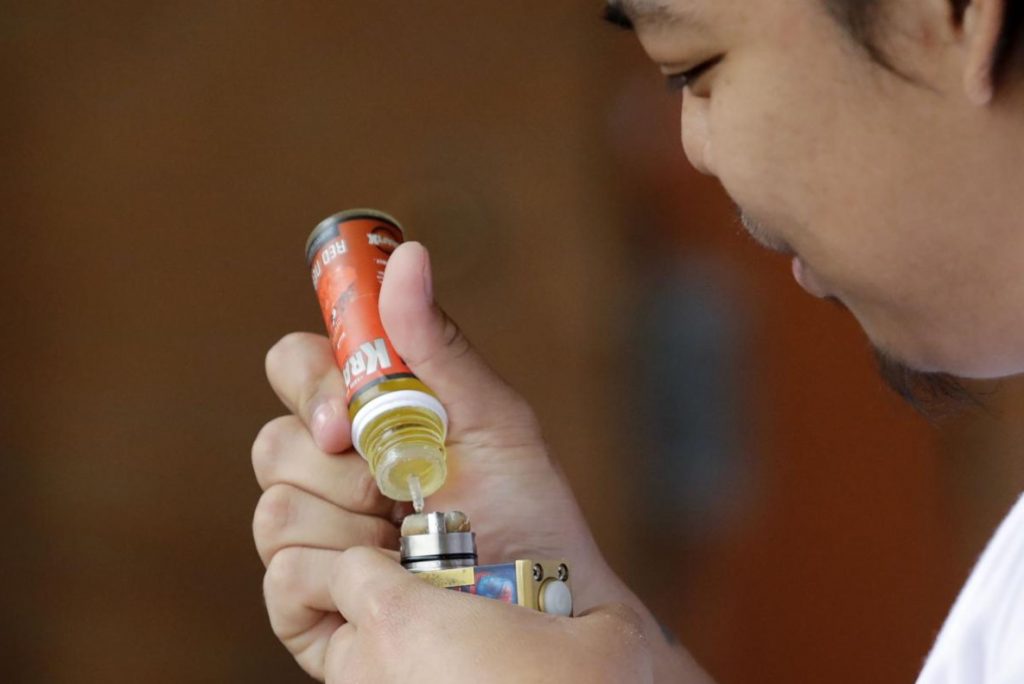World NGO Day 2021

And lessons from Bloomberg’s anti-tobacco campaign in the Philippines
Lindsey Stroud | Taxpayers Protection Alliance
Today (Feb. 27) is World NGO Day, aka World Non-Governmental Organization Day. This is a day that is officially recognized in more than 89 countries that seeks “to inspire people to become more actively involvedwithin the NGO sector and encourage a greater symbiosis between NGOs and both the public and privatesector.”
No one has been more of a symbiotic enigma between NGOs and the public and private sector than the“Lord” of the NGOs Michael Bloomberg. Bloomberg is a Wall Street business hustler-turned founder-turnedmayor-turned so-called philanthropist-turned presidential hopeful to election funder.
Through Bloomberg Philanthropies, his very own foundation and “charitable giving enterprises,” NGO mogul Bloomberg has “spent at least $10 billion on his charitable and political pursuits … for causes that reect his personal interests and passions.” While these pursuits may reect his own personal interests, they certainly don’t reect the interests of consumers, taxpayers or sound science.
There is no more important passion to Bloomberg than eradicating tobacco from the world. Since 2007, Bloomberg Philanthropies has invested $1.1 billion “to combat tobacco use worldwide.” The Bloomberg Initiative to Reduce Tobacco Use argues that the organization uses a “comprehensive, proven approach,” including promoting smoke-free policies, taxation and graphic warnings on cigarette packs, as well as ashy and expensive media campaigns, to end tobacco use. The initiative also invests in funding NGOs; with “69 countries receiving grants and technical support” and 54 countries having “passed a new tobacco control law as a result of Bloomberg Philanthropies support.”
Giving away millions to non-governmental organizations seems like an admirable endeavor from a self-made American billionaire. But it’s not so much that Bloomberg wants to give back to the world as much as how he wants to micromanage the behavior of government ocials and the globe’s adults. And, he’s willing to keep policymakers in his pocket to exert that control as is the case of the Philippines Food and Drug Administration (FDA).
In December 2020, a resolution was led by two Philippine representatives seeking “to conduct an investigation … into the questionable receipt of private funding by the FDA … in exchange for the issuance of specic and pre-dened policies for legal products.”
The resolution was in response to an October FDA hearing on e-cigarettes and heated tobacco products, where it was “revealed that the FDA received funding from The Union and Bloomberg Initiative, international private groups that advocate against all forms of tobacco products.”
Initially, FDA ocials denied receiving the funding, then “eventually admitted to receiving such funding.” In light of the inquiry, “international health and policy experts urged countries to protect regulatory agencies from foreign inuence.”
The funding from Bloomberg presents a major conict of interest in a country that has long been hostile to the adult use of alternative nicotine products. Indeed, in November 2019, Philippine President Rodrigo Duterte announced a nationwide ban on both the use and importation of e-cigarettes. He also authorized the arrest of persons vaping in public. In February 2020, President Duterte signed an executive order than banned vaping in public and enclosed places, and created regulations on e-cigarettes and other new tobacco products.
Since 2007, NGOs and government agencies in the Philippines have been privy to Bloomberg grant giving. Such grants have been issued for organizations to promote policies that increase taxes, implement smokefree policies, and regulate emerging tobacco products, including e-cigarettes and heated devices. The FDA received grant funding between February 2017 and January 2019 to assist in the agency’s “implementation of the National Tobacco Control Program.”
One particular NGO, HealthJustice Philippines, has received eight Bloomberg Initiative grants since 2009 that were aimed to help strengthen tobacco control goals through advocacy. HealthJustice is no fan of tobacco harm reduction products. In November 2020, the organization declared heated tobacco and vapor products “harmful,” claiming such products “are neither safe nor benecial.” Indeed, HealthJustice bogusly claimed that the products “do not help people quit. They simply make smokers switch from one form (traditional) to
another.”
To the contrary, electronic cigarettes and heated tobacco products are less harmful than combustible cigarettes and have been useful in helping millions of adults quit smoking cigarettes. A 2020 statement from the UK Committee on Toxicity of Chemicals in Food, Consumer Products and the Environment concluded “the relative risk of adverse health effects would be expected to be substantially lower” in e-cigarettes and heated products, compared to combustible cigarettes. Further, a February 2021 update from Public Health England
found that in the UK, e-cigarettes were the “most popular aid used by people to quit smoking [and] … vaping is positively associated with quitting smoking successfully.”
Perhaps policymakers in other countries should envision a tobacco control policy similar to the UK’s, which embraces the use of tobacco harm reduction products. In 2019, there were more than 4 million ex-smokers in the UK that had tried vapor products, 2.2 million of whom were no longer vaping. Even with Bloomberg’s bucks, smoking rates in the Philippines have apparently only fallen by four percent and “only about 640,000 of the country’s 15.9 million smokers have kicked the habit.”
As the world celebrates World NGO Day 2021, NGOs across the world ought to reexamine their relationship with Lord Bloomberg’s billions, and should be wary of the funding and tactics his organization has used, and continues to use, to try to inuence tobacco control policies. That funding may end up doing more harm than good.
Lindsey Stroud is a Policy Analyst with the Taxpayers Protection Alliance and runs IGO Watch, an international coalition of free market and taxpayer groups calling for more oversight of international governmental organizations.
Originally published by The Center Square. Reproduced here to circumvent EU GDPR



